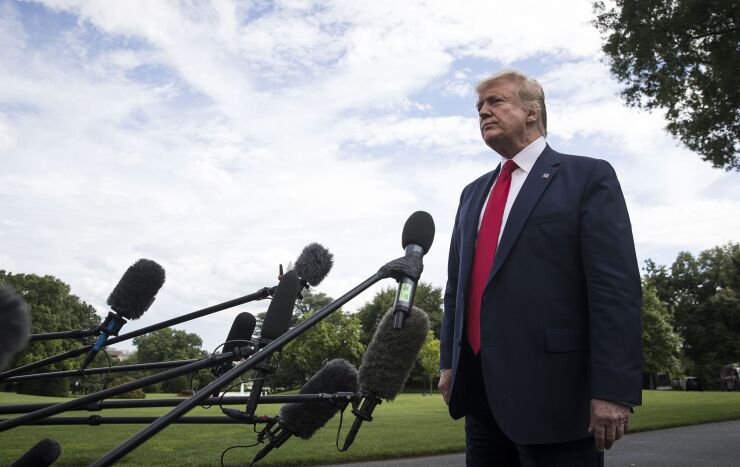Donald Trump can face a lawsuit in New York because his residency at the White House “is not permanent” and his tax returns would prove it, according to an advice columnist suing the president for denying he raped her two decades ago.
E. Jean Carroll, who filed a defamation suit against Trump in November, made the argument in a Monday court filing responding to the president’s request to have the case dismissed on the grounds that New York courts lack jurisdiction. Carroll’s lawyers said Trump hadn’t met the standard under New York law for formally changing his residence to Washington.
Carroll went public with her rape claim in a

The filing raised the prospect Carroll would seek Trump’s taxes to prove New York was his primary home during the relevant time period. The president has aggressively fought against any effort, including by Congress, to gain access to his taxes.
“Many of the documents establishing those facts — such as Trump’s latest New York State tax return — are within Trump’s ‘exclusive control,’” the filing says.
Her filing said Trump’s claim about jurisdiction is an attempt to delay a court-ordered exchange of evidence, which the president last week asked to put off until the residency fight is decided. Carroll last month won court approval to depose Trump by April 6.
“Trump never asserts any other domicile, arguing only that the court should take judicial notice of his current temporary residence in the White House — a fact that is plainly insufficient under New York law to alter Trump’s New York domicile since it is not permanent,” Carroll’s lawyer, Roberta Kaplan, said in the filing in Manhattan.
Trump’s lawyer in the suit, Lawrence S. Rosen, didn’t return a call for comment.
Trump in September announced his intention to change his residence from New York to Florida, saying New York politicians had treated him badly despite the millions of dollars he pays in taxes. But that change doesn’t appear to be part of the dispute over New York jurisdiction because Trump’s allegedly defamatory statements were made in June.
Kaplan said she may seek sanctions against Trump for seeking dismissal of the case on jurisdiction grounds, saying it’s a dubious argument intended to delay discovery.





